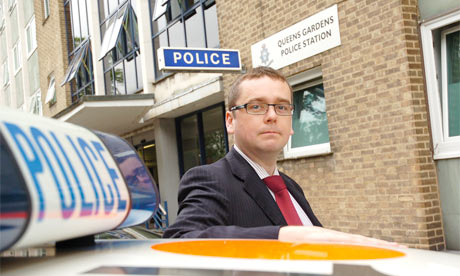October is traditionally the month when organisations begin recruiting for their graduate schemes. We all no doubt remember the report from the Association of Graduate Recruiters, released a few months back, that revealed that there are as many as 69 applicants for every graduate job. Because of this, it goes without saying that each graduate wants to maximise their employability. One really good way of doing this is to look to those who have been through the process before.
To help provide some inspiration and reassurance, I caught up with three former graduates, all aged 35 and under, who are already climbing the career ladder. Although today’s economic climate differs from when these individuals donned their caps and gowns, their advice could prove useful in helping you to get your foot in the door.
Applying for jobs might seem daunting, but it’s important to remember that there are opportunities out there, even if, at first glance, they may not seem appropriate to the subject you’ve been studying at university. This is something that 25-year-old graduate Ardeshir Nasarwanji, can vouch for. As Ardeshir puts it: “It’s important that graduates don’t close doors on themselves unnecessarily. Your degree doesn’t always need to be related to the job you end up doing. Although I started out in operations, I’m now a marketing manager.”
“After I graduated, I was taken on by Merit Plastic Mouldings Ltd on a two-and-a-half year paid placement to improve the firm’s operations. Half way through this, most of the cost cutting exercises had been exhausted due to the recession, so my employer needed to focus on growth instead. Consequently, I was tasked with drawing up a marketing strategy. My management degree featured a marketing element, so I was able to bring in this knowledge, and draw upon my transferable business skills. As I’d already been working within the business for some months, I could utilise the knowledge about the company that I’d already built up.”
Ardeshir’s thoughts are worth taking on board. Some students, particularly those with broader arts and humanities degrees, don’t know exactly what they want to do when they emerge from full time education. It can be easy to fall into the trap of applying only for those roles that you think fit with the type of degree you attained.
Yet this can mean that you end up inadvertently narrowing your options. As Ardeshir told me: “What matters most to employers is that you can demonstrate transferable skills and that you have an understanding of how the business world works. Although my role changed because of business needs, other graduates can certainly alter their career paths down the line. It’s a matter of identifying the skills that you have and communicating them to a potential employer. Operations taught me the importance of lateral thinking and attention to detail – attributes that will always be important in marketing.”
Ardeshir’s advice should hopefully provide some reassurance and show that, even if you don’t secure that perfect role now, it doesn’t mean that you won’t in the future.
Placements and internships have helped many graduates stand out to potential employers and, while the small firm you spend six weeks, or even a year with, may not be in a position to take you on now, if you make the right impression you’ll be in the best possible position to land a full time role a little way down the line. A paid placement worked for 25-year-old graduate, Matt Searle, who undertook a Knowledge Transfer Partnership (KTP) – a project undertaken for an employer whilst supported by a university – with Dominion Gas after he graduated.
Matt said: “Applying for a KTP gave me a route into the industry and made the transition between education and employment easier. Unlike conventional graduate employment schemes, my KTP allowed me to gain industry knowledge while I still had university tutoring to fall back on.
“I was able to use my two year placement to demonstrate my intelligence, ability and dedication to my employer. I built up a detailed knowledge of the company and the marketplace and, when my placement ended, my employer was so impressed that a permanent position was created for me. Learning on the job with an organisation means that you develop an understanding of the organisation’s operations and culture in a way that people applying for roles from outside the company just won’t have.”
As graduate Phil Davies knows only too well, dedication is something that employers will always look for in potential employees. Aged 35, and already a superintendent with Greater Manchester Police, Phil believes it’s important to show employers that you’re committed to continuous professional development. Phil has completed numerous voluntary courses since joining the force, including the Chartered Management Institute’s Chartered Manager programme.
“I keep a portfolio of my achievements and make sure that I get comprehensive feedback from my managers every six months. I’ve included examples from documents I’ve written on new policies or team structures to snippets from newspapers interviews I’ve given regarding cases I’ve worked on. I’m then able to present this evidence each time I have a performance review. By creating a development diary, you can show prospective employers concrete evidence of the skills you have, giving you the edge over candidates who can only talk about their general experiences.
“If you’ve got any examples of good college work, volunteering or charity projects you’ve been involved with, these will all be interesting to potential employers if they demonstrate your creative, communication and organisational skills. I keep any emails of praise I’ve been given by employers and sometimes ask for testimonies from those I work with. These are things you could ask your lecturers or part-time employers for and draw upon in job interviews.










